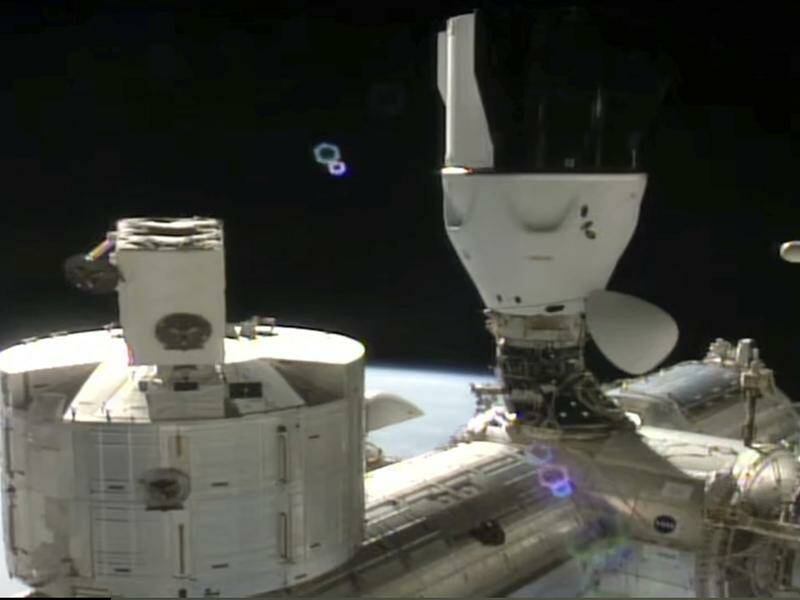
SpaceX successfully transported a new crew to the International Space Station (ISS) in a swift journey of just 15 hours. The capsule, launched from NASA’s Kennedy Space Center, docked with the ISS on Saturday, marking another milestone in commercial spaceflight.
The crew consists of four astronauts: NASA’s Zena Cardman and Mike Fincke, Japan’s Kimiya Yui, and Russia’s Oleg Platonov. They are set to spend at least six months aboard the space station, replacing colleagues who have been on the ISS since March 2024. Those outgoing astronauts are scheduled for return as early as Wednesday.
Upon arrival, Fincke introduced themselves over the radio with enthusiasm, exclaiming, “Hello, space station!” Their efficient travel time, while impressive, pales in comparison to the Russian record for the fastest journey to the ISS, achieved in just three hours.
Mission Details and Adjustments
The astronauts had originally been assigned to different missions. Cardman and another astronaut were pulled from a SpaceX flight in 2024 to accommodate NASA’s two astronauts, Butch Wilmore and Suni Williams, whose stay on the ISS unexpectedly extended from one week to over nine months due to delays with the Boeing Starliner.
Fincke and Yui had been training for the next Starliner mission. However, as the Starliner faces ongoing issues with its thrusters and is grounded until 2026, both switched their focus to SpaceX missions. Platonov’s inclusion in this crew came after he was removed from the Soyuz launch schedule due to an undisclosed illness that occurred a couple of years ago.
The arrival of the new crew temporarily boosts the ISS population to 11 astronauts. To welcome them, those already on board prepared cold drinks and hot meals, underscoring the camaraderie among space travelers.
This latest mission highlights the ongoing collaboration between NASA and private space companies like SpaceX, which continues to play a crucial role in crewed spaceflight. As commercial space travel evolves, missions like this one pave the way for future exploration and scientific research, demonstrating the capabilities of modern technology and international cooperation in space.






